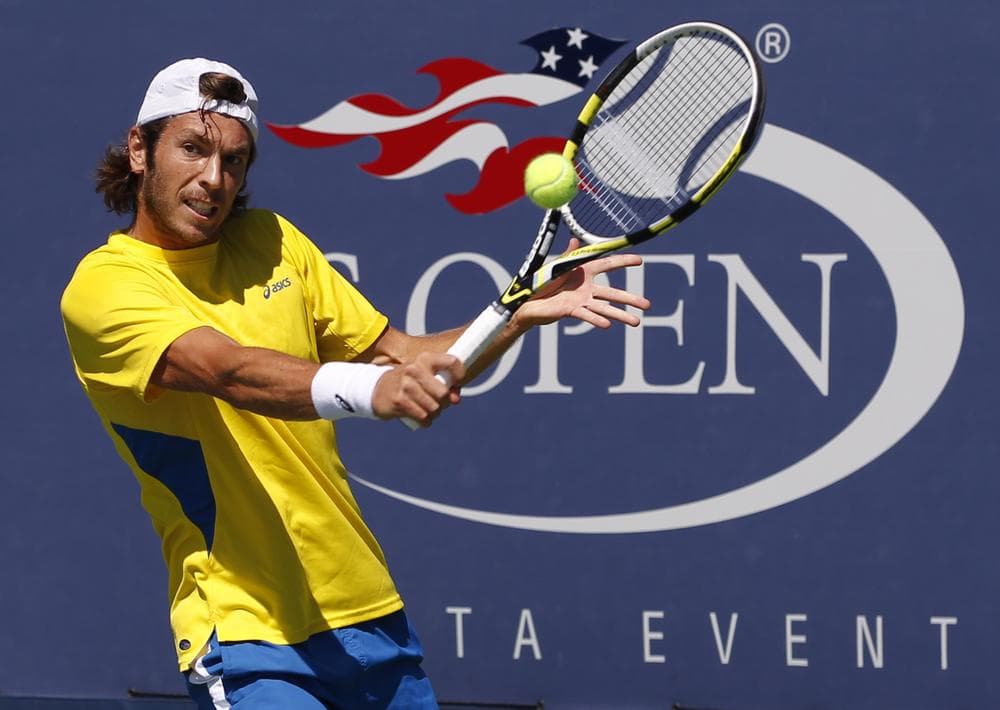Advertisement
Imagining A Tournament For Tennis Writers
Resume
The U.S. Open begins Monday. But imagine a different kind of tennis tournament- a competition between tennis writers who face off with words, not rackets.
MSNBC cultural commentator Touré played out this fantasy in an essay in the New York Times Book Review, pitting John McPhee against Vladmir Nabokov in one semi-final match, and Martin Amis against David Foster Wallace.
Touré writes that in his imaginary tournament, the Intertemporal Tennis Writers Classic, "your forehand is your vocabulary, your backhand is your eye for detail, your ability to turn words into poetry and rhythm is your volley, your use of metaphors and symbolism is your overhead, and your deep understanding of the sport is your all-important first serve."
Touré's examples of classic tennis writing:
- Writer John McPhee, author of "Levels of the Game": "A person’s tennis game begins with his nature and background and comes out through his motor mechanisms into shot patterns and characteristics of play. If he is deliberate, he is a deliberate tennis player; and if he is flamboyant, his game probably is, too. A tight, close match unmarred by error and representative of each player’s game at its highest level will be primarily a psychological struggle."
- Writer David Foster Wallace: "Roger Federer is showing that the speed and strength of today’s pro game are merely its skeleton, not its flesh. He has, figuratively and literally, re-embodied men’s tennis, and for the first time in years the game’s future is unpredictable. You should have seen, on the grounds’ outside courts, the variegated ballet that was this year’s Junior Wimbledon. Drop volleys and mixed spins, off-speed serves, gambits planned three shots ahead — all as well as the standard-issue grunts and booming balls. Whether anything like a nascent Federer was here among these juniors can’t be known, of course. Genius is not replicable. Inspiration, though, is contagious, and multiform — and even just to see, close up, power and aggression made vulnerable to beauty is to feel inspired and (in a fleeting, mortal way) reconciled."
In a letter to the editor, New York Times reader Jay Jennings had this example:
Robert Pinsky, the former United States poet laureate, also deserves a shot at the title with his poem“Tennis.” The section called “Backhand” gives advice both practical and lyrical:
Here, panic may be a problem; and in the clench
From back to jaw in panic you may come
Too close and struggling strike out with your arm,Trying to make the arm do everything,
And failing as the legs and trunk resist.
All of your coinages, and your nerve, may fail. . . .
Guest:
- Touré, author of “Who’s Afraid of Post-Blackness?"
This segment aired on August 29, 2011.